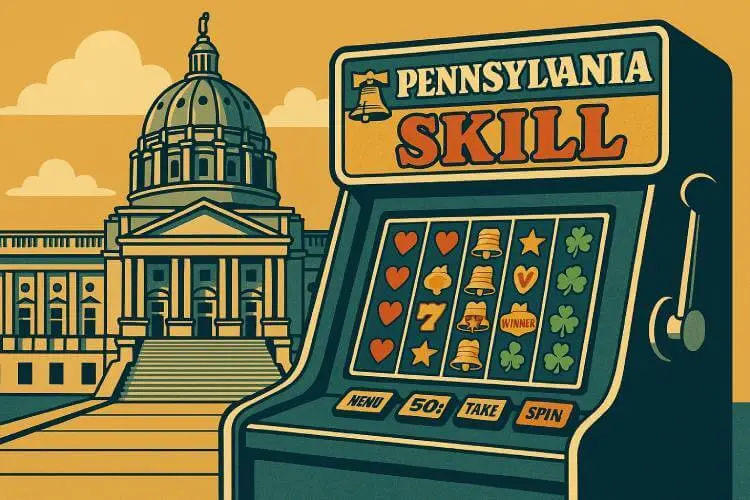PA Lawmaker Pushes Skill Game Bill Without New Taxes


As Pennsylvania lawmakers continue to debate gambling revenue, a new proposal aims to regulate skill games without adding tax burdens. Introduced by Representative Kerry Benninghoff, House Bill 1619 would create a licensing system for skill game terminals. These devices resemble slot machines but rely on player skill, without imposing new taxes on the machines or their revenue. Unlike online casino games, which are already governed by strict licensing and tax rules, these machines currently operate in a legal gray area.
A Licensing System, But No Additional Taxes
The bill outlines a structure for legalizing and regulating the distribution, placement, and operation of skill games. Licenses would be required for three types of entities: distributors ($50,000), operators ($5,000), and establishments ($250). Licenses would be valid for 10 years, with reduced renewal fees, $25,000 for distributors and $1,000 for operators. These fees are designed to fund oversight without creating an additional tax regime.
Notably, the bill stipulates that no amusement or other special taxes will be applied unless explicitly permitted by the legislation. Instead, existing taxes such as sales and income tax would continue to apply.
Oversight by the Department of Revenue
Responsibility for implementing the licensing program would fall to the Pennsylvania Department of Revenue. The department would also be tasked with setting limits on the number and type of skill game machines allowed per location; however, those specifics aren't specified in the bill and would be left to future regulation.
The bill also includes a grandfather clause, allowing existing machines to continue operating as long as they are registered by a yet-to-be-determined deadline. After that, new machines or locations would be subject to updated rules.
Competing Proposals with Higher Tax Rates
Benninghoff’s proposal differs sharply from others under consideration. Governor Josh Shapiro has proposed taxing skill games at a rate of 52%, similar to the tax on slot machines in casinos. Other legislators have proposed rates of 35% and 16%. Supporters of HB 1619 argue that taxing skill games like casino games would harm small businesses and nonprofits that rely on machine revenue to stay afloat.
Meanwhile, estimates of total revenue generated by skill games range from $300 million to over $1 billion annually, but exact figures are unknown due to limited industry disclosure. This has frustrated lawmakers seeking transparency.
Calls for Action Ahead of Budget Deadline
The bill’s timing is critical. Lawmakers have until June 30 to finalize the 2025–2026 state budget. While many agree that the skill games industry needs regulation, they remain divided on how to strike a balance between oversight and taxation. Without legislative agreement, these machines are likely to continue operating under a 2023 court ruling that upheld their legality.
As Pennsylvania grapples with how to handle skill-based gambling outside of traditional online casinos and sportsbooks, HB 1619 offers a middle-ground approach that avoids new tax burdens while still formalizing oversight.
You Might Also Like:
Was this article helpful?
